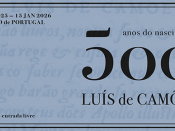Por Emilien Azéma (Laboratoire de Mécanique et Génie Civil - LMGC, Université de Montpellier, France).
For centuries, human civilizations have used, handled, transported and transformed granular materials, such as sand, rock, and powder, in a variety of applications, including civil construction, powder compaction, pharmacy.... As a general observation, in all fields where matter is divided into a “granular” form, technological innovation has been supported by a semi-empirical approach. The solid-like, fluid-like and transition to jamming properties of granular materials have been a subject of extensive investigation since decades in different scientific communities which now benefits from a rich experimental background and various continuum or micro-mechanical models often associated with finite-element and/or discrete-element calculations. Nevertheless, significant decline in natural resources and an increase in human activities challenge the way these materials are currently used in human activities. In order to improve predictions and optimizing materials, new approaches must be developed that have to incorporate increasingly realistic characteristics to highlight the key processes at the grain and contact scales. Regardless of the application, granular media are characterized by generic features such as their discrete and disordered microstructure, the predominance of geometric and kinematic constraints and the dissipative character of interactions. But, for each application, this generic character comes up against specific characteristics such as the shape of the grains, their size dispersity (polydispersity), complex interactions (cohesive, capillary, electrical, fluid phase,...). All these elements of complexity are rarely captured by the most common simulation techniques. In order to obtain a clear and precise picture of the complex behavior of real granular materials, it is essential to understand and quantify each of the above-mentioned effects. In this seminar, we will specifically discuss the effect of grain shape and size on the rheology and microstructures of compressed or sheared grain assemblies. Our numerical results highlight specific non-intuitive behaviors, including the non-linear variation of the strength as a function of the packing fraction of the assemblies when the grain shapes deviate from that of a sphere or when the polydispersity in grain size increases. At the microscopic scale, we explain these behaviors from subtle compensation between the contact networks orientations, force anisotropies, and friction mobilization. These analyses are a first step towards a better understanding of increasingly realistic combined effects on the rheology of divided materials.




















